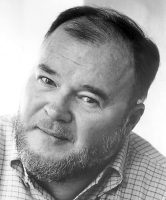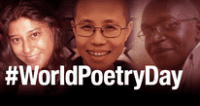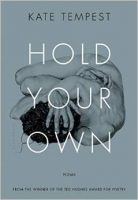March 25, 2015
Edited by David Sanders
Specimen Days
1458 – Inigo Lopez de Mendoza, Spanish marquis of Santillana/poet, dies.
1625 – Giambattista Marini, Italian poet (b. 1569), dies.
1808 – Jose de Espronceda y Delgado, Spanish revolutionary/poet (Cortes), is born.
1899 – Jacques Audiberti, French poet (Race of Men), is born.
1914 – Frederic Mistral, French poet (Nobel-1904), dies at 83.
1937 – John Drinkwater, English poet/playwright (Bird in Hand), dies at 54.
1980 – James Wright, American poet (b. 1927), dies.

Still,
I would leap too
Into the light,
If I had the chance.
—from “Small Frogs Killed On The Highway” by James Wright (1927–1980)
“I would leap too / Into the light, / If I had the chance.” – James Wright
World Poetry
‘Atheist’ Poet Banned in Bahrain
Manama: Joumana Haddad, a Lebanese poet and journalist, has been banned from taking part in a cultural event in Bahrain next month. Joumana was scheduled to present “a banquet of poetry and music” on April 6 as part of the Spring of Culture Festival organised annually by the Bahrain Authority for Culture and Antiquities (Baca), headed by Shaikha Mai Bint Mohammad Al Khalifa. However, the poet said that her “banquet” has been cancelled.
On World Poetry Day, PEN Highlights Cases of Persecuted Poets Worldwide

On 21 March 2015, while people across the globe celebrate World Poetry Day, PEN will be directing public attention to the imprisonment, murder and general harassment of poets, writers and journalists around the world. We will be focusing on five cases that highlight the threats faced by writers who criticise those in power: Aron Atabek (Kazakhstan), Mohammed Ibn al-Dheeb al-Ajami (Qatar), Enoh Meyomesse (Cameroon), Susana Chávez Castillo (Mexico) and Liu Xia (China).
On World Poetry Day, PEN will be directing public attention to the imprisonment and murder of poets, writers and journalists.
Recent Reviews
Review: Kate Tempest, a Young Poet Conjuring Ancient Gods
by Michiko Kakutani

A wunderkind rapper and spoken word performer equally influenced by Wu-Tang Clan and Joyce, Bukowski and Blake; an English poet whose musical sense of language bridges the worlds of rap and traditional lyric verse; a fan favorite at the Glastonbury music festival who became the youngest winner of the Ted Hughes poetry prize. Such dichotomies not only attest to the 29-year-old Kate Tempest’s gift for shattering — and transcending — convention and conventional genres, but they also underscore the tensions and contradictions that fuel her dynamic art.
Micro-Microreview: Dorothea Lasky’s Rome
by Joseph Spece
Rome is doggerel. Reading the book is torturous, so complete is its lack of wisdom, imagination, and valor of insight; not even the vapid James Franco has gotten as close as Lasky to penning a would-be script for TMZ. It is near the nadir of poetry’s possibilities. The (hereby established) micro-micro standard of 500 words feels like 470 too many.
Unruly Thoughts
by Benjamin Landry
The poems in Brain Fever were conceived as a string of responses to articles in the New York Times science section. Although each of the eight sections (“consciousness,” “dream,” “time,” “puzzles,” “the teenage brain,” “circle,” “conveying love,” “memory”) has a prevailing formal structure, the conceit never burdens the work—with the possible exception of the blacked-out redactions in “the teenage brain.”
Fresh Surprises from Two of Ireland’s Most Distinctive Poetic Voices
by John McAuliffe
Eiléan Ní Chuilleanáin and Paul Durcan’s poems characteristically mix together everyday, folkloric and religious occasions. Both use free verse and like to skew the point of view in quick, surprising poems. Although they share some subjects, however, they are utterly distinctive and original poets. Their new books should be on the shopping lists of anyone interested in Irish writing.
One Thousand Things Worth Knowing by Paul Muldoon
by James Marriott
Speaking to the Paris Review ten years ago, Paul Muldoon remarked ‘we’re all, as we age, getting duller and duller in most instances … you need to have all your wits about you, and you’re losing them all the time. The more you’ve done in a particular vein, the less there is to do.’ Muldoon is now sixty-three years old but dullness is less in evidence than ever. Indeed, One Thousand Things Worth Knowing is characterised by a determinedly youthful smartness. Like a child home after the first day of school, the collection has a hyperactive enthusiasm for facts: historical anecdotes, pop culture arcana, scientific curiosities, weird etymologies. For Muldoon, everything is worth knowing. The result is a collection of poetry that is often baffling but always invigorating.
Shadow Poems
by Paul Perry
Ciaran Carson – prolific, compulsive, and protean in his interests and ambitions ‑ brings us a by-now annual collection. This time it’s ‘From Elsewhere’ – poems from the French of Jean Follain. But it’s not a straight collection of translations. Nothing is what it seems in a Carson book. Follain’s poems and the translations Carson makes of them offer him something of a “rabbit hole” to another world. In other words, he has reacted to his own translations with a response poem and created a strange wavering, living mirror of a poem. Carson admits that the doubling process was suggested by his earlier noirish and novelistic collection For All We Know – a kind of smoke and mirrors book, Chandleresque in its romance. Doubles, labyrinths, mazes and counterfeits – it’s the world of a myth-maker, a chronicler, and a trickster.
Eavan Boland reviews On Elizabeth Bishop, by Colm Tóibín
Elizabeth Bishop is the most disruptive and mysterious of modern poets. Disruptive because no one expected a poet of such cool and desolate intelligence to upset the apple cart of 20th-century poetry. Mysterious because it’s still not clear how this happened. How someone who, in James Merrill’s words, undertook the “lifelong impersonation of an ordinary woman” could have dazzled and subverted the modernist canon.
Kate Tempest is a wunderkind rapper equally influenced by Wu-Tang Clan and Joyce, Bukowski and Blake.
Broadsides
Seven Lessons for Writers, from Scottish Poet Kathleen Jamie
by Cassie Werber

“They say the day is coming–it may already be here–when there will be no wild creatures.” So writes Kathleen Jamie in 2005 prose collection Findings. But at a recent lecture it was clear that, while you can take the woman out of the wild, you can’t take the wild out of the woman. Jamie was set to give the first Coleridge Lecture at this year’s Festival of Ideas in Bristol, in the west of England. But the Scottish poet and essayist, her writing amongst the finest-tuned on nature, seemed deeply uncomfortable when placed in the limelight.
The Stacks: The Poet Who Took on Huey Long
Robert Penn Warren made winning Pulitzer prizes look like a habit. Here the author of possibly the best political novel ever written is captured in a fond but piercing profile. The poet, novelist, and all ‘round man of letters Robert Penn Warren was a force to reckon with for most of his long life, and that hasn’t changed much in the 26 years since he died. . . . In 1979, Steve Oney captured the lion in winter for a long profile in The Atlanta Journal & Constitution Magazine, reprinted here with the author’s permission. Please enjoy “Robert Penn Warren Finds His Place To Come To”.
Seven Lessons for Writers from Scottish Poet Kathleen Jamie
Drafts & Fragments
Pay with a Poem: Cafes around the World to Exchange Coffee for Poetry
by Marta Bausells
What is a poem worth? As authors around the world despair of making a living, a company based in Vienna has finally come up with a definitive answer: one cup of coffee.
Nick Cave Goes Straight to Fans With ‘The Sick Bag Song’
by Alexandra Alter

Nick Cave, the Australian-born poet, novelist, actor, composer and rock band frontman, has been known to cross-pollinate his various creative pursuits. His 2009 novel about a sex-addicted beauty product salesman, “The Death of Bunny Munro,” was available as an iPhone app that blended text with an audiobook narrated by Mr. Cave, set to music by one of his fellow band members. His book tour featured live music. Mr. Cave is attempting something even more unorthodox with his new book, “The Sick Bag Song,” an epic poem about his travels across the United States with his band, Nick Cave and the Bad Seeds. Mr. Cave and his publisher, Canongate Books, are bypassing bookstores and other retail outlets altogether, and are instead marketing the book directly to fans through a website, thesickbagsong.com.
Nick Cave’s new book, “The Sick Bag Song,” is an epic poem about his travels with Nick Cave and the Bad Seeds.
Poetry In the News
What Happened When A White Male Poet Read Michael Brown's Autopsy As Poetry

On March 13, poet Kenneth Goldsmith took the stage at a conference titled Interrupt 3 at Brown University and read a poem titled "The Body of Michael Brown." The piece was a slightly altered version of Brown's official autopsy report, rehashing the medical details surrounding the teenager's death after he was killed by police last year in Ferguson, Missouri. The remixed version ended with: "The remaining male genitalia system is unremarkable."
On March 13, poet Kenneth Goldsmith took the stage at Brown University and read a poem titled “The Body of Michael Brown.”
New Books
Ten Windows: How Great Poems Transform the World by Jane Hirshfield
[Hardcover] Knopf, 320 pp., $24.95

“Poetry,” Jane Hirshfield has said, “is language that foments revolutions of being.” In ten eloquent and highly original explorations, she unfolds and explores some of the ways this is done—by the inclusion of hiddenness, paradox, and surprise; by a perennial awareness of the place of uncertainty in our lives; by language’s own acts of discovery; by the powers of image, statement, music, and feeling to enlarge in every direction. The lucid understandings presented here are gripping and transformative in themselves. Investigating the power of poetry to move and change us becomes in these pages an equal investigation into the inhabitance and navigation of our human lives.
Brand New Ancients by Kate Tempest
[Paperback] Bloomsbury USA, 64 pp., $15.00

Kate Tempest's words in Brand New Ancients are written to be read aloud; the book combines poem, rap, and humanist sermon, by turns tender and fierce. Set in Southeast London, Brand New Ancients finds the mythic in the mundane. It is the story of two half-brothers, Thomas and Clive, unknown to each other — Thomas the result of an affair between his mother and Clive's father. Tempest, with wide-ranging empathy, takes us inside the passionless marriage of Jane and Kevin — the man who suspects Thomas is not his son, but loves him just the same — and the neighboring home of Mary and Brian, where betrayal has not been so placidly accepted. The sons of these two households — quiet, creative Thomas and angry, destructive Clive — will cross paths in adolescence, their fates converging with mortal fury.
Hold Your Own by Kate Tempest
[Paperback] Bloomsbury USA, 128 pp., $17.00

Kate Tempest, winner of the Ted Hughes Award for Brand New Ancients and widely regarded as the UK's leading spoken word poet, has produced a new poem-sequence of electrifying power. Based on the myth of the blind prophet Tiresias, Hold Your Own is a riveting tale of youth and experience, sex and love, wealth and poverty, community and alienation. Walking in the forest one morning, a young man disturbs two copulating snakes-and is punished by the goddess Hera, who turns him into a woman. This is only the beginning of his journey . . . Weaving elements of classical myth, autobiography and social commentary, Tempest uses the story of the gender-switching, clairvoyant Tiresias to create four sequences of poems, addressing childhood, manhood, womanhood, and late life. The result is a rhythmically hypnotic tour de force-and a hugely ambitious leap forward for one of the most broadly talented and compelling young writers today.
Blue Yodel by Ansel Elkins
[Paperback] Yale University Press, 88 pp., $18.00

Originated in 1919 to showcase the works of exceptional American poets under the age of forty, the Yale Series of Younger Poets prize is the oldest annual literary award presented in the United States. Ansel Elkins’s poetry collection, Blue Yodel, is the 109th volume to be so honored. Esteemed poet and competition judge Carl Phillips praises Elkins for her “arresting use of persona,” calling her poems “razor-edged in their intelligence, Southern Gothic in their sensibility.”
The Beauty: Poems by Jane Hirshfield
[Hardcover] Knopf, 128 pp., $26.00

The Beauty, an incandescent new collection from one of American poetry’s most distinctive and essential voices, opens with a series of dappled, ranging “My” poems—“My Skeleton,” “My Corkboard,” “My Species,” “My Weather”—using materials sometimes familiar, sometimes unexpected, to explore the magnitude, singularity, and permeability of our shared existence. With a pen faithful to the actual yet dipped at times in the ink of the surreal, Hirshfield considers the inner and outer worlds we live in yet are not confined by; reflecting on advice given her long ago—to avoid the word “or”—she concludes, “Now I too am sixty. / There was no other life.”
“Poetry,” Jane Hirshfield has said, “is language that foments revolutions of being.”
Correspondences
Dead Japanese Poets Make Great Collaborators
by Ashira Morris

Matthew Rohrer is the author of nine books of poetry, including his first, "A Hummock in the Malookas", which was selected by Mary Oliver for the National Poetry Series, and “A Green Light,” which was short-listed for the 2005 griffin International Poetry Prize. Matthew Rohrer is the author of nine books of poetry, including his first, “A Hummock in the Malookas”, which was selected by Mary Oliver for the National Poetry Series, and “A Green Light,” which was short-listed for the 2005 Griffin International Poetry Prize. Waiting alone on the subway platform to catch a train to Brooklyn, Matthew Rohrer was thinking about how much he missed creating collaborative poetry with a particular friend, a fellow poet. In his bag was a book, “The Essential Haiku: Versions of Basho, Buson, & Issa.” “Maybe these guys won’t mind if I collaborate with them,” he thought.
Language as Homeland and Collective Consciousness: an Exchange with Uyghur Poet Ahmatjan Osman and Translator Jeffrey Yang
by Claire Pershan
The following comes from an email interview with Uyghur poet Ahmatjan Osman and translator Jeffrey Yang, on the topic of the upcoming English translation of Osman’s work. Uyghurland: The Farthest Exile (Phoneme Media, 2015) collects over two decades of Ahmatjan Osman’s poetry in Jeffrey Yang’s collaborative translations from the Uyghur and Arabic, and is the first collection of Uyghur poetry to appear in English print publication.
In his latest book Matthew Rohrer has taken to collaborating with Japanese Haiku masters Basho, Buson, and Issa.
Envoi: Editor’s Notes
Lessons from the Past: Adrienne Rich

“The issue is happiness,” the poet George Oppen says in the epigraph I took for Midnight Salvage. I’ve known great happiness in my life along with great darkness, and a question that has repeatedly entered my poetry has been, how do we use the direct experience of happiness that may be given us, whether of love and sexuality or creativity or the sense of connectedness with other beings, human and otherwise? The philosopher Hannah Arendt writes about the concept of “public happiness”—the sense of being a participant, a citizen, of sharing the power to create collectively. She says that’s what the framers of the U.S. constitution really intended in saying that “men” are endowed with the inalienable right to the “pursuit of happiness.” The idea becomes more tantalizing in a society where most citizens feel individually and collectively disempowered—as just now in the U.S. But the issue of happiness turns up also in the poetry of Charles Olson, and in my poem, “Camino Real,” I have a dialogue with both Olson and Oppen, in which I say, “Why measure? It’s itself the measure.” It occurs to me now that Whitman was not simply inventing an ideal United States; he was trying to show what public happiness would feel like, along with public grief and mourning as in his Civil War poems.
—from "Adrienne Rich in Chile: an Interview"
“I’ve known great happiness in my life along with great darkness” – Adrienne Rich